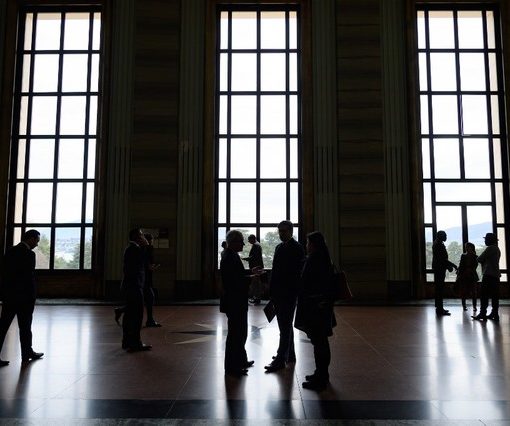
GENEVA (24 March 2020) – The Chairpersons of the 10 UN Treaty Bodies on Tuesday urged global leaders to ensure that human rights are respected in government measures to tackle the public health threat posed by the COVID-19 pandemic.
“Only by including all people in COVID-19 strategies can the pandemic be combatted,” said Hilary Gbedemah, Chair of the Committee on the Elimination of Discrimination against Women and current head of the group that brings together the respective committee chairs.
The 10 experts called on States to adopt measures to protect the rights to life and health, and to ensure access to health care to all who need it, without discrimination. They urged governments to take extra care of those particularly vulnerable to the effects of COVID-19, including older people, people with disabilities, minorities, indigenous peoples, refugees, asylum seekers and migrants, people deprived of their liberty, homeless people, and those living in poverty. They also stressed that women are at a disproportionately high risk because in many societies they are the main caregivers for sick family members.
“No one should be denied health care because of stigma, or because they belong to a group that might be marginalized,” said Gbedemah. “States need to provide targeted support – including financial, social and fiscal – to those particularly affected, such as those without health insurance or social security.”
Targeted support should also extend to other rights. In countries practising comprehensive restrictions on movement, governments should use all means available, including distance learning, to continue access to education, particularly for children and adolescents. Students with disabilities should also have equal access to the same education opportunities. States should also ensure provision of essential goods and services to the most vulnerable so that no one is left behind.
The Chairs warned that fear and uncertainty from this pandemic could lead to scapegoating and prejudice. “States must take active steps to ensure a sense of solidarity prevails, including through protection against racism and xenophobia or the growth of unbridled nationalism,” said Gbedemah.
A growing number of States have imposed strict controls that affect human rights, such as limitations on freedom of movement and restrictions on peaceful assemblies and privacy.
“These controls must be undertaken pursuant to a valid legal framework. In countries that declare a state of emergency, such a declaration must be exceptional and temporary, strictly necessary and justified due to a threat to the life of the nation,” Gbedemah said.
“A state of emergency, or any other security measures, should be guided by human rights principles and should not, in any circumstances, be an excuse to quash dissent,” she added.
ENDS
The ten United Nations human rights treaties are legally binding treaties, adopted by the UN General Assembly and ratified by States. The ten treaty bodies, or Committees, are the UN Human Rights Committee, the Committee on Economic, Social and Cultural Rights, the Committee on the Elimination of Racial Discrimination, the Committee on the Elimination of All Forms of Discrimination Against Women, the Committee Against Torture and its Sub-Committee on Prevention of Torture, the Committee on the Rights of the Child, the Committee on the Rights of Persons with Disabilities, the Committee on Migrant Workers, and the Committee on Enforced Disappearances.




